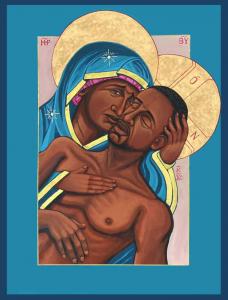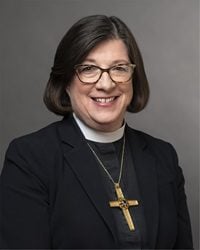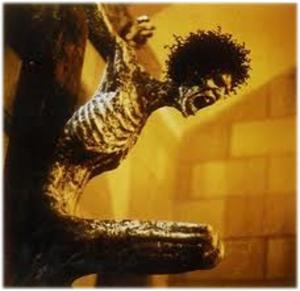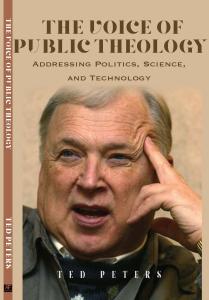PT 3208. Resentment vs Compassion Part 8
Two Christian Nationalist Narratives
-
White American Christian Nationalism: The Decline Narrative
-
White ‘n’ Woke Progressive Christian Internationalism: The Unhappy Consciousness Narrative

In the previous post on Christian Nationalism’s Decline Narrative, we tracked the myth that frames the thinking of White American Christian Nationalism (WACN). In this post, we turn to liberal or progressive Christians. Recall my previous approach to this topic in “Resentment vs Compassion. Part 5:” Ressentiment in the White ‘n’ Woke Unhappy Consciousness.” Here I’d like to continue that discussion of The Unhappy Consciousness Narrative” replete with a white self-loathing spirituality.
How do progressive Christians think about SURJ (Showing Up for Racial Justice)?
“I am speaking up within the surround-sound of racial justice silence. I can’t be woke and do otherwise,” says progressive pastor Karen Ward.

Is this how a progressive Christian thinks? Let’s ask Elizabeth Eaton, as an example. She is Presiding Bishop of the Evangelical Lutheran Church in America (ELCA). The good bishop makes it emphatically clear that she and her church stand categorically against racism. “As an anti-racist church that condemns white supremacy, we acknowledge how these injustices are traumatizing to Black, Indigenous and people of color (BIPOC) and call on God’s comforting love.” Because of this emphatic commitment to racial justice, this makes the progressive Christian an inclusivist rather than an exclusivist.[1][2]
Nine progressive Christian Patheos columnists agree. “Many of our Christian brothers and sisters of color are praying that we white Christians will stop, examine our conscience, face where we have failed God and our neighbors, and experience a true change of heart.” Herb Montgomery adds: “White Christians should be standing with and working alongside movements for Black lives right now. “ Show Up for Racial Justice!
Confession of White Sins in the Unhappy Consciousness Narrative
Before showing up for racial justice, we progressives take a long moment to confess complicity in white privilege, systemic inequality, and institutional racism. Dan Chappell hurts. And he wants the rest of us who are white to hurt.
“I was once told to ‘look long enough for it to hurt’. I ask the same of my brothers and sisters in Christ. I especially ask this of my white evangelical brothers and sisters, that have surrendered the ground of social justice to progressive theology and politics. We cannot act until we understand there is a problem and believe we are called to act.”
Rebecca Todd Peters feels that hurt.
“In some ways, it doesn’t matter if my ancestors owned slaves. After all, my privilege as a white woman in the U.S. in the 21st century is real, whether my ancestors owned slaves or not. The horror of slavery transcends race and nationality in much the same way that genocide anywhere is a stain on the human community.”
In previous posts, I’ve shared snippets from “A Liturgy for the Confession of Racial Injustice” that Patheos columnist Tim Shuttle has created. It includes these versicles.
Ldr: We confess that we are often blind to our own privilege.
All: Give us a holy curiosity about what being Black in America is really like; and what it means to suffer injustice because of race.
Ldr: We confess that we are often blind to the subtle ways that race has shaped our hearts and minds; our speech and actions.
All: Open our eyes, O Lord, and teach us to see the truth about ourselves and our world.
Ldr: We confess that the church has not always been on the side of the right;
All: Guide us to seek your grace and forgiveness for the terrible things that often have been done in your name. [3][4]
Are progressive Christians nationalists or internationalists?

The ELCA presiding bishop, Elizabeth Eaton, positively enlists our planet’s peoples to fight climate change. She admonishes us to become stewards of God’s Earth. Caring for the Creation is “a faith issue for all of us…we are called to be tending God’s garden.” Because of the planetary scope of the ecological concern, this makes the progressive Christian an internationalist rather than a nationalist.
Repentance in the Unhappy Consciousness Narrative

God loves sinners who repent. Jesus says, “I tell you that in the same way there will be more rejoicing in heaven over one sinner who repents, than over ninety-nine righteous persons who do not need to repent” (Luke 15:7). This means heaven right now is rejoicing louder and longer than a stadium roar when the home team scores a touchdown. Why? Because my guilt-ridden white progressive Christian friends don verbal sackcloth and ashes while repenting on behalf of our racist ancestors and for benefitting from contemporary white privilege.
This sustained public self-humiliation, it is assumed, will make those previously victimized by racism like us better. It’s not clear whether non-white Christians like us better because of our self-loathing, because they certainly haven’t decided to come to our white progressive churches in large numbers. Be that as it may, public self-loathing for being white is now liturgically instantiated.
In a previous post I called this progressive self-loathing the “unhappy consciousness.” This is my own exaggerated interpretation of Hegel’s notion of double-mindedness, das unglückliche Bewusstsein.[5] The progressive Christian is both the judge and the judged. The greater the self-loathing, the happier the white progressive Christian feels. No doubt those rejoicing in heaven have overlooked the quirks at work in progressive Christian spirituality.
Now, let me see if I can reconstruct the Self-Loathing Narrative which is presupposed in White American Progressive Christian self-understanding. What does this myth look like? Let’s try this on for size.
America was born in the original sin of European racism. This racism bequeathed to America’s afterbirth the enslavement of Africans and the genocide of Native Americans. The 18th century Revolution was led by persons not committed to Christian beliefs. And America’s sense of manifest destiny produced American imperialism around the world.
Moral progress can be documented. The Civil War put an end to slavery and the Civil Rights Movement extended emancipation culturally. During the enlightened post-World War II era the march of liberation has positively affected Black, Indigenous and people of color (BIPOC), women, and LGBTQ+ persons. More must be done to accelerate the momentum toward overcoming discrimination, poverty, and the health of our planet’s ecosphere.
Only progressive Christians and their non-Christian allies can carry this burden of social transformation. Evangelicals are disqualified from being allies for two reasons. First, evangelical preaching is Christ-centered, which insults the integrity of non-Christian religions and those with strictly secular belief systems. Second, evangelical politics is morally corrosive. Evangelicals deny equal rights to non-Christians, women, and LGBTQ+ persons. Worst of all, they are White American Christian Nationalists.[6]
I deliberately structured the White ‘n’ Woke Progressive Christian narrative in three parts. What we do not see here is Eden plus fall plus redemption.
No. There is no Eden here. America’s founders were already drowning in the original sin of racism and imperialism. Our white ‘n’ woke progressive friends do not want America to return to its origin, to its roots. Rather, this nation needs to progress towards redemption. The progressive future differs from the past. We white ‘n’ woke progressives render judgment against ourselves; and our repentance initiates creative action to make the future more moral than the past or present.
Critique and Defense of White ‘n’ Woke Progressive Christianity [7]
Critics of White ‘n’ Woke Progressive Christianity belittle the self-loathing. Yes, this seems spiritually narcissistic. A church denomination wallowing in racial guilt is like a badly programmed Roomba vacuum cleaner that repeatedly bumps into the same chair leg, never getting around to cleaning the entire carpet. Confession is not itself action. Belittling critics  accuse progressives of spiritual suicide.
accuse progressives of spiritual suicide.
Not so! That’s the response of systematic theologian Christian Scharen at Auburn Seminary. “The true headline for the liberal church in America is a story of resurrection, not suicide. The liberal church’s vital role in doing justice, powerfully, on the ground in community after community, is testament to the power of the Holy Spirit — the Spirit given to the church to empower it as it follows Jesus.“
The Unhappy Consciousness Narrative: Conclusion
Where have we been? As additional posts added to the series on resentment and compassion, we have looked at two myths associated with American Christian Nationalism. The first is the Decline Narrative presupposed by White American Christian Nationalists. By returning to our origin, the Decline Narrative says we can Make America Great Again.
The second is the Unhappy Consciousness Narrative presupposed by White ‘n’ Woke Progressive Christians. We dare not return to our original sin beginnings, according to this narrative. That’s because America’s origin is soaked in European racism. Rather, we must move forward toward social transformation. Progressives must progress.
The Unhappy Consciousness Narrative plays a trick on progressive spirituality. By absorbing the guilt for four centuries of racial injustice, white progressives blame themselves. But, white progressives feel redeemed by this self-blaming. Then, via reaction formation, they blame white evangelicals. Poor evangelicals!
Well, dear reader, that’s where we have been. This has been an exercise in public theology, an attempt to understand what’s going on.
PT 3208. Resentment vs Compassion Part 8. Two Christian Nationalist Narratives
▓

Ted Peters pursues Public Theology at the intersection of science, religion, ethics, and public policy. Peters is an emeritus professor at the Graduate Theological Union, where he co-edits the journal, Theology and Science, on behalf of the Center for Theology and the Natural Sciences, in Berkeley, California, USA. His book, God in Cosmic History, traces the rise of the Axial religions 2500 years ago. He previously authored Playing God? Genetic Determinism and Human Freedom? (Routledge, 2nd ed., 2002) as well as Science, Theology, and Ethics (Ashgate 2003). He is editor of AI and IA: Utopia or Extinction? (ATF 2019). Along with Arvin Gouw and Brian Patrick Green, he co-edited the new book, Religious Transhumanism and Its Critics hot off the press (Roman and Littlefield/Lexington, 2022). Soon he will publish The Voice of Public Theology (ATF 2023).
See his website: TedsTimelyTake.com. His fictional spy thriller, Cyrus Twelve, follows the twists and turns of a transhumanist plot.
▓
Notes
[1] Lutherans have good reason for confessing and repenting. It was a white Lutheran named Dylan Roof who assassinated nine African Americans in a church in Charleston, South Carolina, June 15, 2015. Roof was a Neo-Nazi and white supremacist. Elizabeth Eaton: “The martyrs of Mother Emmanuel were not the first victims of violence. Martin Luther King Jr. was not the first victim of violence. Our only hope is in the innocent One who was violently killed on Good Friday, Emmanuel, God with us. He was wounded for our transgressions including the deadly sin of racism. But as he rose from the dead, we are able to rise up.”[2] This matter of racial justice is of decisive meaning for me. I’ve engaged this matter frequently in Patheos posts.
A Progressive Race Narrative (Part 1)
A Progressive Race Narrative (Part 2)
Critical Race Theory in Classroom and Pew
Is Racism a Gospel Issue? Response to Grayson Gilbert
The Public Theology of Valerie Miles-Tribble
The Public Theology of the Black Pastor
[3] Tim Shuttle is attuned to the prophetic task of the public theologian. “That’s the voice of the prophetic arm of the story. We have to be the ones who are willing to say everything’s not just automatically going to be fine. If you scapegoat immigrants. If you abuse the environment. If you continue to imprison black men at alarming rates, then things will not be fine. Things will, in fact, fail in epic proportions. This is inconvenient to say, inconvenient to believe, but so is resurrection, right?” The resurrection hope mitigates the narcissism that could otherwise drag down the unhappy consciousness narrative.[4] As I have said frequently, public theology is conceived in the church and then offered to the world for the sake of the common good. This seems to be the method of Pastor Karen Ward too. “The voice the church raises in the public square will only be heard by those outside the church, when those in the church first raise our voices and implement change within our own church household. Changes to the racial composition of our judicatories structures, committees, boards, councils, and senior judicatory leadership, so these begin to reflect the racial justice and inclusion we pray for in our wider society. The Christian tradition is chocked full of hope. It is now kairos time for this hope to grow legs, stand up and take action. So, let us begin.”
[5] Hegel says that “the Unhappy Consciousness is the consciousness of self as a dual-natured, merely contradictory being” (Phenomenology of Spirit, §206, 126). Hegel continues. “The Unhappy Consciousness itself is the gazing of one self-consciousness into another, and itself is both, and the unity of both is also its essential nature. But it is not as yet explicitly aware that this is its essential nature, or that it is the unity of both” (Phenomenology of Spirit, §207, 126). Repentance is godly, no doubt! Let’s thank God in our prayers that white progressive Christians have come to the point of confession and repentance. Yet, a theologian can only ask the white progressive Christian: how might a dose of divine grace help you to bridge this diremption to realize an essential unity? But, that’s another task.
[6] Lutheran theologian Leah Schade. “ God does not desire for people of color, LGBTQ folks, women, the poor, the elderly, the sick, or the disabled to be excluded, pushed away, deprived of their rights, stripped of their dignity, or suffer systemic oppression. If Christians truly believe that God is guiding our nation, then we need to publicly proclaim this in our sermons, our prayers, our liturgies, our Bible studies, and our actions.”
[7] White self-loathing is not the standard evangelical objection to liberal theology. More typically, it’s the thinness of liberal theology. “I find it thin, ephemeral, light, profoundly unsatisfying. It seems to me barely different from being secular humanist,” says Roger Olson. I hesitate to think this would apply to a Lutheran progressive. Contemporary Lutheran theology is not liberal in the Schleiermacher sense. Rather, Lutherans are orthodox and evangelical when it comes to the gospel of Jesus Christ. Further, The world over, most Lutherans are progressive in the sense that they have adopted post-enlightenment values such as democracy, freedom, equality, dignity, justice, and such.
References
Alumkal, A., 2017. Paranoid Science: The Christian Right’s War on Reality. New York: New York University Press.
Gorski, P., 2017. American Covenant: A History of Civil Religion from the Puritans to the Present. Princeton NJ: Princeton University Press.
Peters, T., 2/2009. Astrotheology and the ETI Myth. Theology and Science 7:1, pp. 3-30.
Peters, T., 2019. Covenant, Blood, and Violence: America At War With Itself and Others. Dialog , 58(1), pp. 39-53.
Peters, T., 2023. The Voice of Public Theology. Adelaide: ATF.














